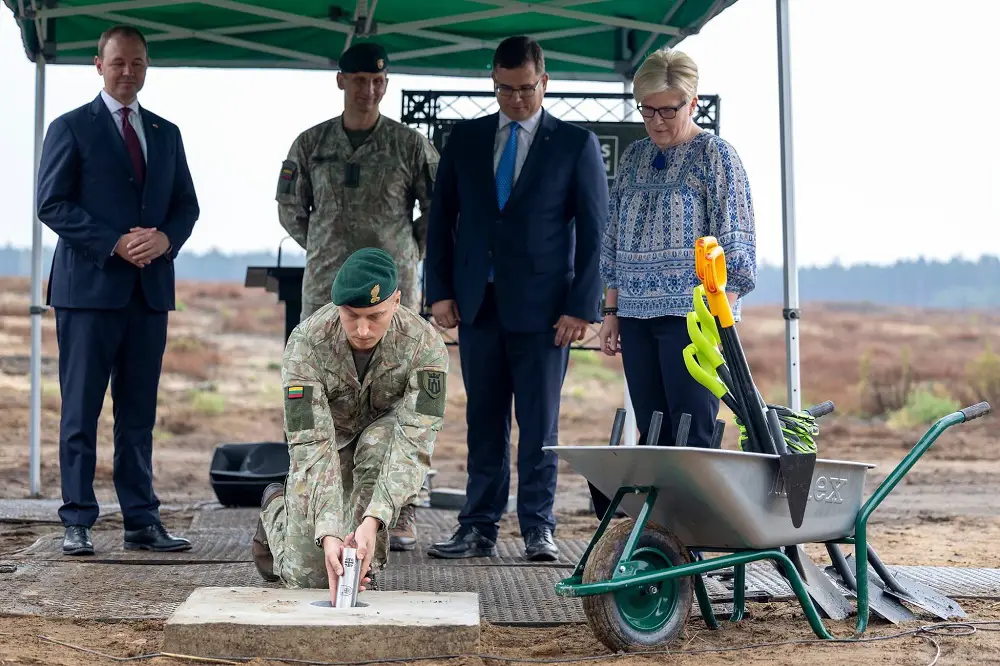Lithuania has launched construction on an expansive military campus aimed at accommodating a German NATO brigade, marking a crucial development in bolstering NATO’s presence in Eastern Europe. The groundbreaking ceremony, which took place at the Rūdninkai Training Area on August 19, was highlighted by a symbolic capsule burying, attended by key Lithuanian and German officials. Present at the event were Lithuania’s Prime Minister Ingrida Šimonytė, Defence Minister Laurynas Kasčiūnas, Chief of Defence General Raimundas Vaikšnoras, and State Secretary at the German Federal Ministry of Defence Nils Hilmer.
Spanning an impressive 170 hectares, the upcoming campus is one of Lithuania’s most ambitious military projects since the country regained its independence. Under a €125 million contract awarded to Eikos Statyba, the facility will include 120 buildings, helipads, and over 10 kilometers of internal roads. The new campus will also provide expansive training fields, ensuring that the 4,000-strong German brigade stationed there has access to modern infrastructure tailored to NATO’s evolving operational needs. The deployment “one of the biggest projects undertaken by the German army,” bringing the German military’s strategic shift, known as “Zeitenwende,” into action.

General Vaikšnoras stating, “Today is a historic day, a historic moment when one of the biggest projects in the history of post-independence Lithuania will be implemented over the next several years.”
“The deployment of the German brigade, which will see over 4,000 soldiers stationed in Lithuania, represents a shift in NATO’s strategic posture, moving towards “deterrence by denial,” Defence Minister Kasčiūna said.
“Our aim is not to threaten or intimidate… but we are confident that if necessary, we will not lack the will or the strength to make anyone who wants to test our strength regret their decision,” Prime Minister Šimonytė said.
This development is part of NATO’s broader strategic shift toward “deterrence by denial,” which emphasizes forward deployment and enhanced readiness. With its proximity to Lithuania’s borders, the new campus will significantly enhance the alliance’s ability to respond swiftly to emerging threats in the region. The construction of this facility follows an intense preparation period, and it stands as the largest piece of military infrastructure ever built in Lithuania. The deployment of the German brigade is expected to further solidify the NATO presence in the Baltics, reinforcing the region’s security and defense capabilities amidst growing geopolitical tensions.
















